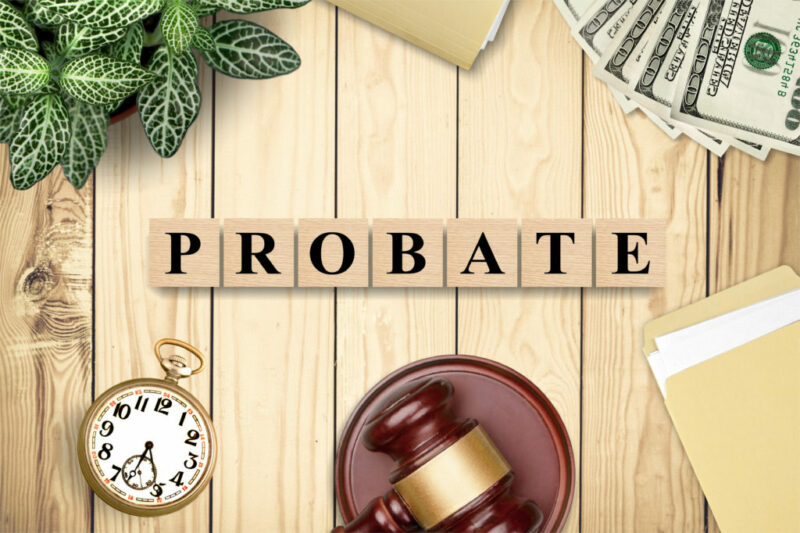A person who would like their estate to go to their children without difficulty after they pass may be uncertain about the best way to accomplish this goal. Ultimately, in this situation, wanting to leave the most possible to children and not have to worry about creditors, taxes, or other legal issues taking away from their inheritance is critical. It may seem like naming beneficiaries and giving those beneficiaries one’s estate directly is the right way to do this. However, this approach may not provide adequate safeguards that can protect such wealth from being subject to seizure under various laws and rules. Instead, a lifetime asset protection trust may be just the right way to meet these objectives. For help determining the right estate plan for your unique circumstances, consider connecting with the San Francisco trust attorneys at Von Rock Law by calling (866) 720-0195.
Factors That May Impact Your Child’s Unprotected Inheritance
The future for everyone is yet to be told. Life can be quite unpredictable and what can happen at any point be good or bad, or a combination of both. If an estate plan is not properly created and executed, a beneficiary can potentially have their inheritance taken from them. This is especially true if it is not distinctly separate property from other aspects of a person’s life. For example, divorce is something that happens regularly in the United States as the data from the U.S. Bureau of Labor Statistics shows. After a beneficiary gets married unless there are certain protections put in place beforehand, assets and wealth that are received from an estate plan may be open to division should a divorce transpire. Additionally, other factors that could impact inheritance would be a beneficiary that falls victim to a gambling addiction or has a drug dependence problem.
What is a Lifetime Trust?
A lifetime trust has some flexibility for when it can be created and used. It can be established while the grantor, or the individual that sets up the trust, is still alive. A lifetime trust can also be created once the grantor has passed. Skillfully written and legally binding language in one’s end-of-life documents can make this happen legally. When a trust is made, a trustee will manage the funds. A lifetime asset protection trust would allow the trustee to obtain a tax identification number so that the assets would go to the trust instead of the beneficiary. In this way, assets would not be the beneficiary’s property, assets would instead belong to the trust and be protected by it.
The person that will be named as the beneficiary is up to the preference of the grantor. A beneficiary, for example, could be their own trustee. In other cases, another party may be the trustee and tasked with managing the trust for the benefit of the named beneficiary. The grantor can determine the rules for how the funds will be handled. These rules can account for potential pitfalls a beneficiary may experience like a broken marriage or a drug dependence.
Benefits Of a Lifetime Asset Protection Trust
Several benefits can be obtained by establishing a trust including the following:
Protecting Assets from Creditors and Unprepared Beneficiaries
Spendthrift clauses can be included in a lifetime trust that will prevent a beneficiary from using the wealth that may be received from the trust as a means to obtain credit. This is helpful because if a beneficiary is particularly undisciplined with money, they will be unable to squander their inheritance by poorly thought out and bad financial decisions. Creditors that do provide a beneficiary with a credit line based on the trust will be unable to secure payment from the trust.
Divorce Safeguarding
A lifetime trust may be able to keep a beneficiary’s inheritance separate property from their marital property and assets. In the event of a divorce, an ex-spouse will be unable to be awarded any of the wealth from within the trust.
Addiction And Dependance Protections
Alcohol dependence, drug abuse, or gambling addiction can all be reasons to cause someone to struggle to think clearly. Drugs are a serious problem in the United States as reported by the National Institute on Drug Abuse (NIDA). As a result, poor decision-making can easily follow. A person that is under the influence of a substance or in the throes of addiction will not be thinking of the implications of using their inheritance if they can access it. Though, a lifetime trust can have specific provisions to account for a beneficiary that is particularly vulnerable to addiction and who could relapse.
Protection During Illness or Incapacitation
A beneficiary may be stricken with a chronic or disabling disease or suffer from an incident that causes incapacitation. A trustee managing the trust can still act on behalf of the beneficiary making decisions for their benefit even when they are unable to be independent and speak for themselves.
Asset Distribution After Beneficiary Death
If a beneficiary does not outlive the trust but the trust surpasses the life of the beneficiary, the grantor can determine who receives the rest of the funds in the trust.
Disadvantages of a Living Trust
There are also some disadvantages to a living trust that might prevent someone from using this estate planning tool.
More Roadblocks for Beneficiaries to Receive Their Inheritance
Adding more restrictions and guidance for when a beneficiary can receive their funds and how this happens can be beneficial in some instances, such as when a beneficiary has a drug problem. In other instances, a responsible and prepared beneficiary may have to wait longer to obtain their full inheritance.
Costliness And Complexity
Establishing a trust can be more costly than a simple Last Will and Testament. However, the additional complexity and cost could result in the specific outcome intended by the executor. The California estate planning attorneys at Von Rock Law can help individuals wanting detailed protections for beneficiaries in their estate plans.
Speak With an Experienced California Estate Planning Attorney Today
A lifetime asset protection trust might be the right tool to supplement your estate plan and have it serve your wishes the way that you want after you pass on. There are advantages and disadvantages to trusts, however, and visiting an attorney to determine what will best suit your needs can be advantageous. If you have questions or would like more information on lifetime trusts, the California estate planning attorneys at Von Rock Law can be reached by calling (866) 720-0195. Initial consultations are free-of-charge.




